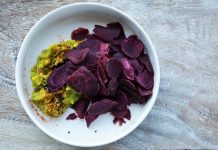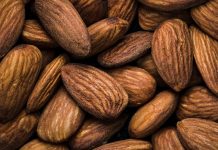
Coronary artery disease (CAD), also known as ischemic heart disease, is a leading cause of morbidity and mortality worldwide.
Lifestyle changes, including dietary modifications, are crucial for managing CAD.
This review presents a synthesis of the research evidence on the types of foods that individuals with CAD should avoid, with a focus on high-fat foods, processed foods, sugar-laden foods, and high-sodium foods.
High-Fat Foods and CAD
Several studies associate the consumption of high-fat foods with an increased risk of CAD.
High-fat foods, especially those rich in saturated and trans fats, raise blood cholesterol levels, leading to the build-up of fatty deposits in the arteries, a condition known as atherosclerosis.
A study by Jakobsen et al. (2009) involving over 350,000 participants found that replacing saturated fats with unsaturated fats reduced the risk of CAD.
Moreover, trans fats have been associated with increased low-density lipoprotein (LDL or ‘bad’ cholesterol) levels and reduced high-density lipoprotein (HDL or ‘good’ cholesterol) levels.
Consequently, patients with CAD are recommended to limit their intake of high-fat foods such as red meat, full-fat dairy products, and deep-fried foods.
Processed Foods and CAD
Processed foods are another category of foods linked to CAD.
These foods often contain high levels of sodium, sugar, and unhealthy fats, contributing to high blood pressure, obesity, and high cholesterol – all risk factors for CAD.
Micha et al. (2012) showed a positive correlation between the consumption of processed meats and the incidence of CAD.
Hence, patients with CAD should limit the intake of processed foods like canned goods, fast food, and processed meats.
Sugar-Laden Foods and CAD
Excessive sugar intake has been associated with obesity, diabetes, and heart disease. A 15-year study by Yang et al. (2014) demonstrated a significant relationship between a high-sugar diet and an increased risk of dying from heart disease.
The American Heart Association recommends limiting added sugars to 6 teaspoons per day for women and 9 teaspoons for men.
As a result, CAD patients should minimize consumption of sugar-laden foods such as soft drinks, candies, and pastries.
High-Sodium Foods and CAD
High sodium intake can increase blood pressure, a risk factor for CAD.
A meta-analysis by Aburto et al. (2013) found that reduced salt intake led to a significant decrease in blood pressure in both hypertensive and normotensive individuals.
The American Heart Association advises limiting sodium intake to less than 2,300 milligrams per day, and ideally, no more than 1,500 milligrams per day.
Therefore, CAD patients should avoid high-sodium foods like pickles, soy sauce, and pre-packaged meals.
Conclusion
In conclusion, a healthy diet plays a significant role in managing CAD.
Based on the current research evidence, CAD patients should limit the intake of high-fat foods, processed foods, sugar-laden foods, and high-sodium foods.
More large-scale, long-term studies are needed to further explore the impact of diet on CAD and develop more detailed dietary guidelines for CAD patients.
However, it is clear that dietary modifications, coupled with regular exercise and medical treatment, can contribute significantly to improving the health outcomes of individuals with CAD.
Copyright © 2023 Scientific Diet. All rights reserved.








